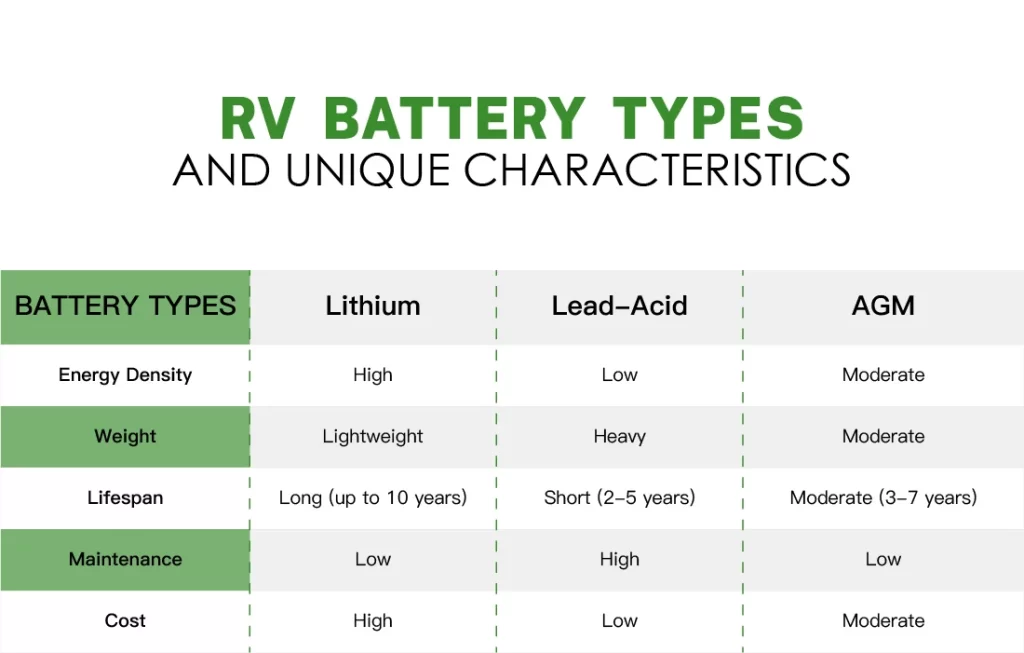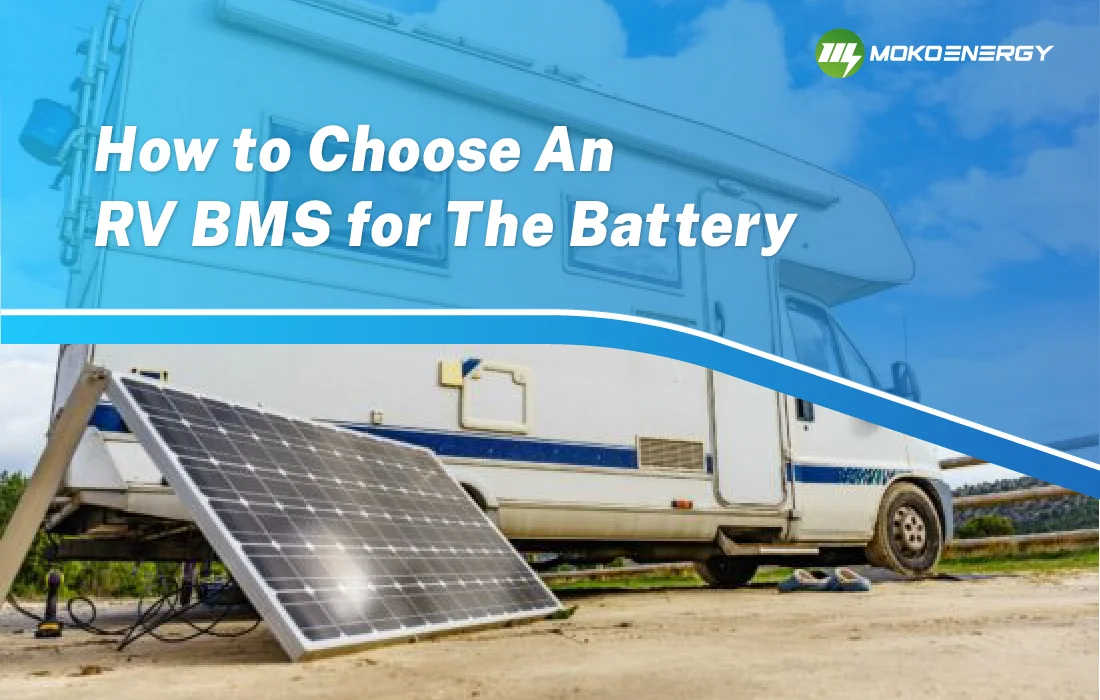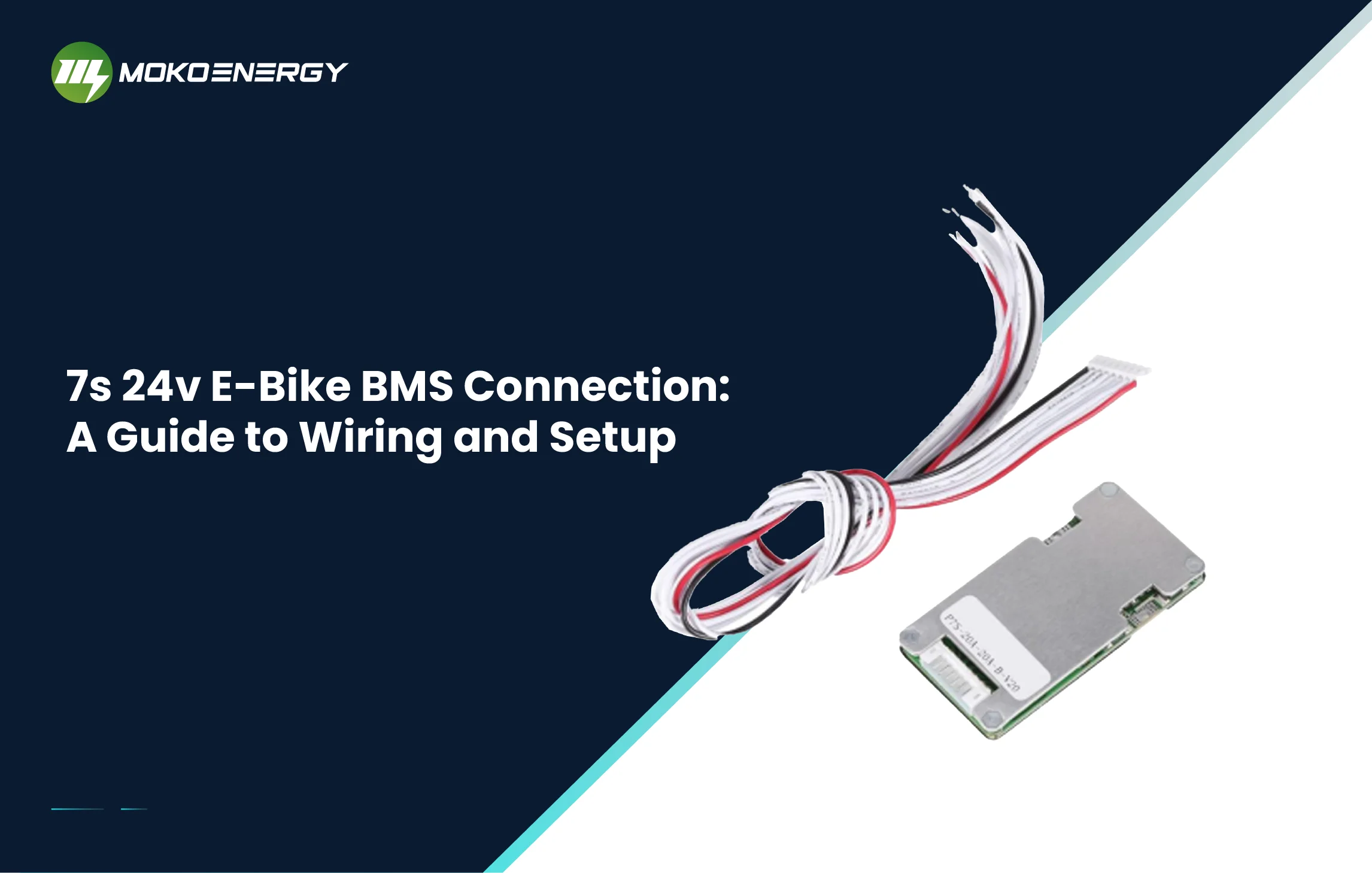A camper battery is one of the most powerful and overlooked pieces of equipment you have, making life in an RV possible by powering your tow vehicle, regulating interior temperature through heating and cooling, and providing electricity for all your appliances and electronics. While well-maintained camper batteries can last between 4-5 years on average, neglecting their care can lead to failure within just one year of use, incurring replacement costs and the risk of being stranded with a dead battery. Battery maintenance is crucial for every type of camper, and an RV BMS (Battery Management System) is the way to protect the batteries and ensure their optimized performance, ensuring a smooth and uninterrupted camping experience.
What Can a BMS Do For Your RV Batteries?
Fundamentally, a battery management system includes overcharging and overdischarging guard systems which are the most common causes of significantly reducing the battery’s lifecycle and sometimes creating potential safety hazards. Through the use of sensors for charge levels and having safety mechanisms in place, the BMS makes sure that your RV batteries do not enter these states, in which they are harmful, keeping them within a safe range for operation.
The second function of BMS is monitoring. They continuously report accurate and real-time data on your battery’s capacity, voltage, temperature, and other parameters that you need to follow closely. They also provide valuable information on battery usage, charging, and maintenance, thus assuring that you will never run out of power at the wrong time.
The other important feature of RV BMS is to enable charging and cell balancing in a power efficient manner. The BMS driven by intelligent algorithms will help to achieve the required voltage and the proportion to each cell of the battery bank, therefore maximizing the overall capacity and performance of the battery bank designated for use. This mechanism, therefore, maintains the functionality of the battery over time, allowing it to serve its full purpose without being susceptible to premature degradation.
In general, most BMS systems are equipped with data logging functionality which enables you to store the historical data on your battery and track its performance over time. Such precise information is a great tool for discovering trends, fixing system issues, and making the best decisions regarding when to replace or enhance your batteries.
Understanding RV Battery Types
Not all batteries are created equal, and choosing the right type for your RV is crucial. Here’s a quick overview of the most common RV battery types and their unique characteristics.
Lithium Batteries
Even though lithium batteries may be regarded as new entrants to the RV battery market, the majority of RVs are adopting lithium batteries as a preferred option. The next-generation batteries are equipped with a number of features such as light-weight design, superior endurance and fast charging options. The outstanding point of lithium batteries is the impressive lifespan which gets up to 10 to 15 years in some cases and this is much longer than the conventional battery options. As well as lithium batteries provide a stream of power that does not have fluctuate with the battery charge level, ensuring the power supply continuity throughout their operating cycle. But, the same consistency of power they provide comes along with a high price which lithium batteries mostly cost above $300 each.
Lead-Acid Batteries
The lead-acid battery is the old and current choice among RV manufacturers. While in production, batteries such as these are usually fitted into RVs before they are distributed. Lead-acid batteries have a short life span of 3-5 years but this type of technology is a good choice since it is cheaper and widely distributed. We need to highlight the fact that the lead-acid batteries will decrease their power as the charge level is reduced, which means less electricity will enter your RV as they are drained. Nevertheless, on the one hand, lead-acid batteries are compatible with series connections for extension of the battery capacity and maximization of the power output when necessary.
Absorbed Glass Mat (AGM) Batteries
AGM batteries offer a special place in the position of the RV battery mix, between lithium and lead acid, providing a favorable cost/performance ratio. Akin to a lead-acid battery in several ways, AGM (Absorbed Glass Mat) requires less care and holds a charge longer than ordinary batteries. They are also empty and spill-free, which avoids the potential of leaking, which could cause alarm when using lead-based batteries. AGM batteries offer an ideal balance of cost, reliability, and maintenance-free performance and that is an explanation for their popularity among those RVers who are looking for a good solution without spending too much money. Similarly, in situations where a considerable amount of power is required, multiple AGM batteries can be connected together to increase their capacity.

Choosing the Right RV BMS
What to Consider when choosing the most suitable BMS for your RV among a multitude of alternatives on the market is definitely a brain-teaser. Here are some key factors to consider:
Battery Chemistry
The BMS you select must have the appropriate connectivity with the particular battery chemistry (lithium, lead acid, AGM) you use in your RV.
Battery Capacity and Configuration
Take into account the total capacity of your battery array and whether it’s configured with series/parallel connections or a mixture of both.
Charging Sources
Analyze the charging inputs you intend to use (solar, shore power, alternator) to ensure that the BMS is able to manage the input voltages and currents.
Temperature and Environmental Conditions
If you want your RV to work optimally even in extreme temperatures and extreme environments, make sure that the RV’s BMS is equipped with robust temperature management and weather resistance.
Desired Features
Make sure that the features you need are available; including Bluetooth connectivity, data logging, and user-friendly interfaces, etc.
Budget and Cost Considerations
Though a reliable BMS is an investment, bear in mind the long-run benefits it offers to battery life and safety.
These elements are important to take into consideration. After doing so, you can pick an RV BMS that will not only fit perfectly into your existing system but also satisfy your specific demands.
MOKOEnergy: Your Trusted Partner for RV Battery Solutions
RV BMS is what MOKOEnergy specializes in. MOKOEnergy looks back on years of experience and constantly works on innovation. The portfolio contains a wide range of BMS solutions designed for RVs.
Lithium Battery BMS: MOKOEnergy’s lithium battery BMS is engineered to unlock all possible power of your lithium-ion battery bank. Featuring advanced cell balance, temperature monitoring, and in-built protection from overcharging and over-discharge, this BMS delivers optimum performance and durability for your batteries.
Lead-Acid Battery BMS: The lead-acid BMS from MOKOEnergy is an ideal choice for those already using traditional lead-acid batteries as it is a very reliable and cheap solution. With this BMS being the case, several features are incorporated i.e., voltage monitoring, charge regulation and temperature compensation, to ensure that the lead-acid batteries are charged and maintained in the right manner.
Customizable BMS Solutions: MOKOEnergy is aware that every RVer has own specific requirements. As a result, they provide a variety of BMS solutions that are adjusted to your specific battery arrangement, charging sources, and preferred features. They will offer you their team of experts together with you and they will design a BMS system what exactly you want.
MOKOEnergy’s focus on quality, innovation, and customer service is what makes it a reliable partner for all your needs regarding battery management for your RV. Be it lithium battery MOS, lead-acid, or custom systems MOKOEnergy is there for you.
Therefore, what’s holding you back? Unveil the secret of RV battery management systems and take your next adventure with success. Discover MOKOEnergy’s BMS offerings on its website now, and you’ll be able to say goodbye to the hassles of battery management when you are on the move.






